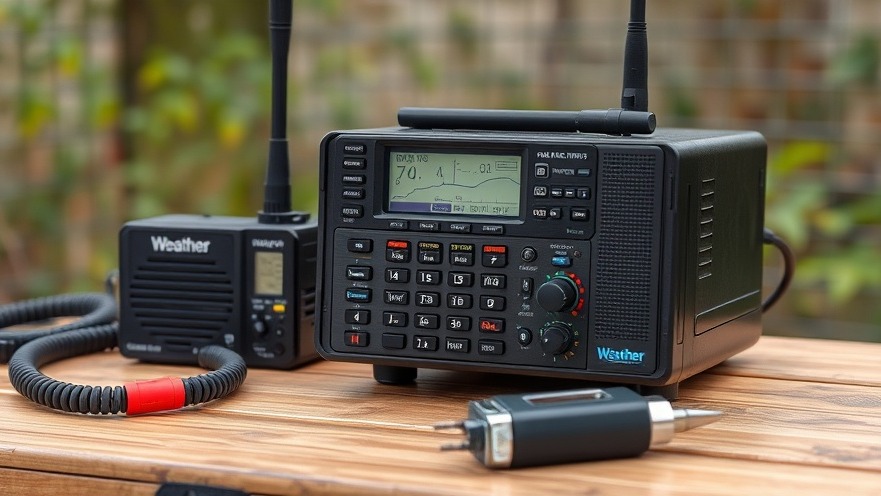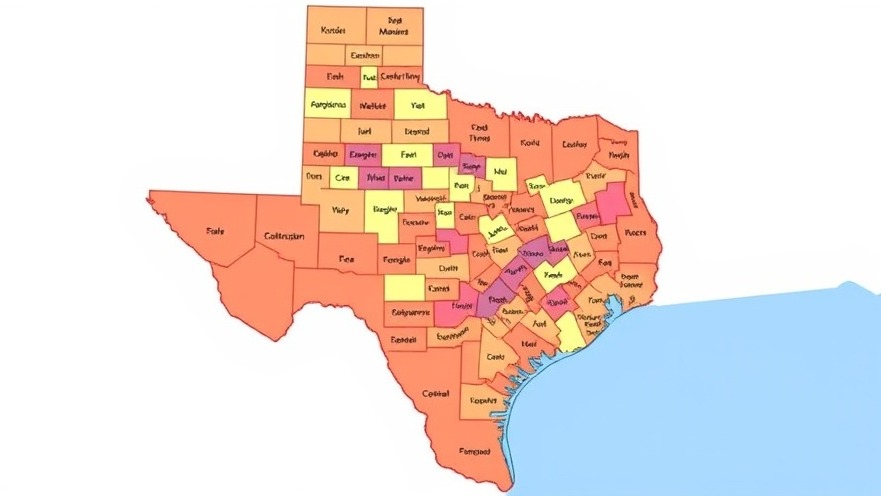
Senators Cruz and Cantwell Push for Vital Weather Radio Upgrades
In the aftermath of the catastrophic Hill Country floods that claimed over 100 lives, U.S. Senators Ted Cruz of Texas and Maria Cantwell of Washington are introducing a bill aimed at modernizing the federally-supported weather radio system. This initiative seeks to enhance emergency communication standards, particularly in flood-prone areas, reinforcing the importance of timely and effective alerts during natural disasters.
Understanding the Need: Unraveling the Flood Response
The tragic events of July 4 highlight a critical gap in emergency response communication. The National Weather Service (NWS) issued its first alert regarding the floods a full three hours and 21 minutes before reports of flooding began. Despite following established protocols for alert dissemination, numerous factors—including deteriorating cell service and communication issues among federal, state, and local agencies—rendered this effort insufficient; many residents remained unaware of the impending danger.
Modernizing Public Safety: The Proposed Changes
The proposed bill aims to upgrade the National Oceanic and Atmospheric Administration (NOAA)’s National Weather Radio All Hazards network, which features over 750 radio stations, including 79 in Texas. Key updates include the installation of additional transmitters to fill service gaps, implementation of backup power sources, and improvements in geolocation accuracy for alerts. These enhancements are designed to ensure that vulnerable communities have reliable access to emergency information, especially in areas where internet connectivity is lacking.
Political Context: Pandemic of Cuts and Restructuring
Amidst this legislative push, a backdrop of budgetary constraints looms large. Cruz and his fellow Republican senators voted in favor of a recent spending bill that rescinded funds originally meant for NOAA, part of a broader narrative of federal budget cuts affecting various agencies responsible for weather forecasting and disaster response. This contradiction raises important questions about federal priorities, especially following a devastating flooding event.
Bipartisanship in Action: A Collective Effort for Improvement
The renewed focus on weather radio modernization demonstrates a rare moment of bipartisan collaboration in Congress. The previous version of the bill saw similar bipartisan support but failed to advance past committee stages. Cruz and Cantwell’s joint effort is a critical step toward enhancing the disaster preparedness infrastructure, as it brings together voices from both sides of the aisle united by the shared goal of protecting communities.
The Lives Impacted: Personal Stories and Community Resilience
The impact of ineffective communication during the Hill Country floods can be measured not just in the tragic loss of life, but in the stories of families who faced unwarranted peril due to a lack of timely information. In the aftermath, one local resident described how their phone’s alerts were delayed, leading to dangerous decisions. Such personal accounts underscore the urgency behind the proposed modernization, illustrating that effective communication could save lives.
What Lies Ahead: Future Implications for Weather Preparedness
As communities across Texas continue to grapple with the implications of climate change, the Senators' initiative becomes increasingly relevant. If successful, their legislative efforts could set a precedent for similar modernization efforts nationwide, ensuring that other flood-prone regions learn from Texas's harrowing experiences. Investing in better weather communications not only protects lives but also builds a culture of resilience against natural disasters.
Actionable Insights: How You Can Stay Prepared
In light of these developments, residents are reminded to stay vigilant and informed. Regularly check updates from the NWS, have an emergency plan in place, and consider investing in a weather radio that could provide crucial information during power outages or other disruptions. Preparing ahead of time can make all the difference when disaster strikes.
In conclusion, while Cruz’s efforts to modernize the weather radio network reflect significant progress, ongoing public engagement is essential. By advocating for better communication systems and holding lawmakers accountable for adequate funding, communities can help foster a future where timely alerts become the norm rather than the exception. Sign up for the latest Texas updates to stay informed and empowered!
 Add Element
Add Element  Add Row
Add Row 



Write A Comment